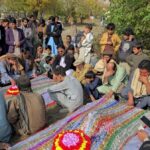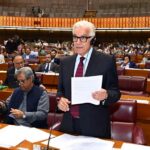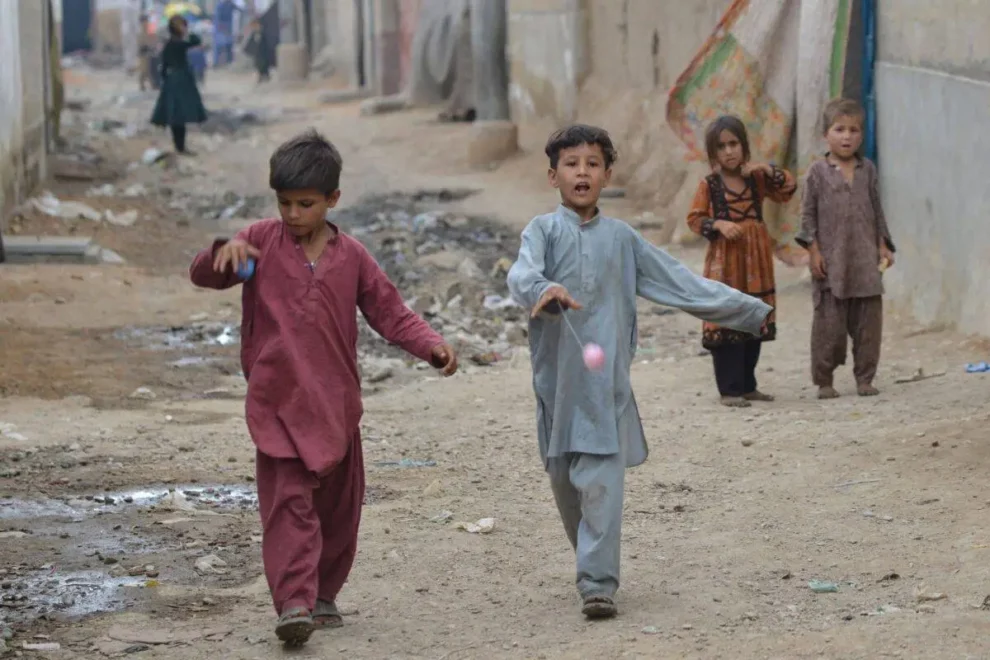Saeedullah waved goodbye to his friends as he boarded a bus taking over 150 Afghan refugees to Pakistan’s south-western Chaman border crossing with Afghanistan.
He is one of the thousands of Afghan refugees who have either started or are planning to return to their homeland following Islamabad’s decision to evict what it says are over 1 million “illegal immigrants”.
Islamabad has set 1 November as the deadline for all undocumented migrants, mainly Afghans, to voluntarily leave the country, warning of arrests and deportations after that date.
“I am not leaving by choice but I have no other option. I don’t want to be arrested or face any humiliation,” Saeedullah, a father of five, told Anadolu.
Hailing from Afghanistan’s north-eastern Takhar province, Saeedullah came to Pakistan days before the US invasion of Afghanistan after the11 September terror attacks.
In Karachi, a crowded refugee camp became his new home.
Saeedullah was teaching at a local madrasa, or religious seminary, until last week.
He lost his status as a legal immigrant in 2012 as Pakistani authorities refused to renew his Afghan refugee card.
“And there’s no longer the threat of violence,” he added.
Since the Taliban returned to power over two years ago, Afghanistan has been facing grave economic challenges.
Currently, according to the UN Office for the Coordination of Humanitarian Affairs, a record 28.3 million people depend on humanitarian and protection assistance in the country, up from 24.4 million in 2022 and 18.4 million in 2021.
Latest UN figures show some 1.3 million Afghans are registered refugees in Pakistan, while another 880,000 have legal status to stay in the country.
According to Pakistan’s caretaker Interior Minister, Sarfraz Bugti, over 1.7 million Afghan refugees are not registered with the government.
Most of the Afghan refugees live in the north-western Khyber Pakhtunkhwa and south-western Balochistan provinces, which border Afghanistan.
The southern Sindh province, with Karachi as its capital, also hosts some 500,000 Afghan refugees.
‘Reign of fear’
In a room at a refugee camp in Karachi, a group of Afghan nationals were discussing Islamabad’s eviction plan, uncertainty visible on their faces even in the dim light.
Nestled on the northern outskirts of Pakistan’s commercial hub and most populous city, this rundown locality with limited healthcare services and basic sanitation is home to nearly 250,000 Afghan refugees who were forced to flee their country due to a series of conflicts over the past four decades.
Rahimullah, an elder of the Afghan refugee community, said police had “unleashed an indiscriminate reign of arrests much before the government’s eviction announcement.”
“We haven’t been going out of the camp for over a month, not even for work,” he told Anadolu.
“I was just at the local police station trying to get them to release several Afghan youths they detained yesterday. They were detained despite having all the legal documents,” he said, as the others nodded along.
Nearly 2,000 Afghans, including 700 in Karachi, have been arrested since early September in a crackdown on undocumented migrants, according to police figures.
Rahimullah put the number at 1,300 for Karachi alone over the past one month.
According to a statement from Afghanistan’s department for refugee affairs, some 23,000 Afghans have been expelled by Pakistan in the past 20 days. Islamabad has not issued any figures from its side nor commented on the Afghan statement.
Source : MEMO















